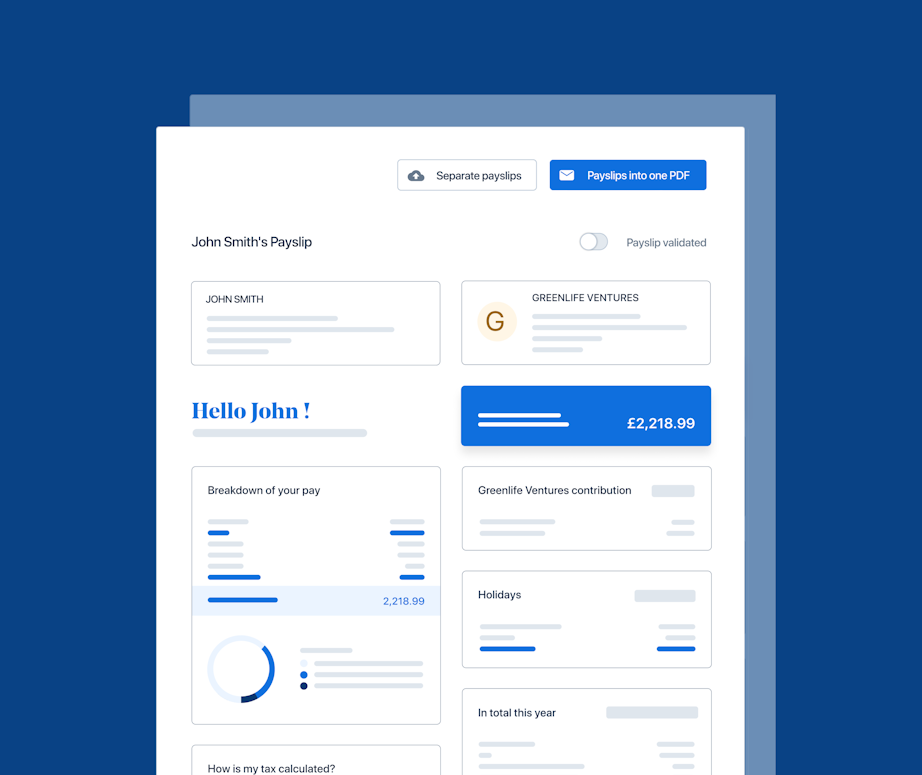Unpaid Leave in the UK: What Employers Need to Know

In the UK, unpaid leave refers to time an employee takes off, which they don’t get paid for. Since it’s not a legal right, it’s up to you as an employer to establish your own policy and ground rules for this type of leave.
Let’s explore what unpaid leave is, what your employees are entitled to and how to manage this type of time off.
What is unpaid leave?
Let’s start with a definition of unpaid leave. As the name might suggest, unpaid leave is about employees taking time off which is unpaid. They’re still employed by you; they’re just not receiving a salary. It’s completely different from other paid leaves like sick, paternity or maternity leave. For these types of leave, employees can access a minimum statutory payment. But for unpaid leave, the employee receives nothing.
There are many reasons for taking unpaid leave, from family emergencies to career breaks and extended holidays. But what are employees exactly entitled to when it comes to this type of leave?
What are employees’ unpaid leave rights in the UK?
Legally speaking, employees aren’t entitled to unpaid leave in the UK. In other words, you don’t have to grant unpaid leave to an employee unless it’s unpaid parental leave or for things like jury service.
Can an employer refuse to give you unpaid leave in the UK?
Yes, as an employer, you can refuse unpaid leave because it isn’t a legal right (unless it’s unpaid parental leave). However, it’s typical to have policies in place to ensure unpaid leave is treated fairly and consistently for all employees.
Many UK employers will usually grant reasonable unpaid leave as long as the leave won’t result in safety or welfare concerns for other staff or has a detrimental effect on the business.
What’s the difference between unpaid parental leave and unpaid leave?
There’s one big exception and that’s unpaid parental leave. This is a statutory right for all parents (biological or adoptive), whereas unpaid leave is not a legal entitlement. Parents are entitled to take up to 18 weeks’ leave for each of their children up until the child turns 18.
This leave is per child rather than per job. So, if the employee is new to your company but has already taken some of this leave with a previous employer, you only have to offer the remaining balance.
Employees are entitled to unpaid parental leave if
They’ve worked with your company for at least a year
Their child is under the age of 18
They’re the parent on the birth certificate or adoption certificate
They’re not self-employed but a full employee of your company
Why employers should consider offering unpaid leave
It’s understandable that many employers don’t want to stray outside their legal obligations when it comes to providing leave. Although you don’t pay staff on unpaid leave, having them vacant from your business can harm your bottom line and how smoothly operations run.
Still, unpaid leave can be a great way to build better staff-management relationships, i.e. to offer more flexibility and more options to your employees when they might need a few days off.
Life happens (and doesn’t stop for any business). At some point, staff members are likely to face difficult times - an unexpected problem moving house, a relationship breakdown or other kinds of emergency situations. An employer who shows empathy during these trying times will be more successful at building a supportive and caring work environment team members want to stay in.
Best practices when creating an unpaid leave policy
Creating a policy for anything you plan to offer employees is always a great ideal. Afterall, you need to clearly communicate what employees are entitled to and how to request the leave in the first place.
Here are some things to keep in mind when creating your policy:
Duration and frequency of unpaid leave. Define how often employees can request this type of leave.
Who’s eligible? You might want to stipulate a certain service length before they can access unpaid leave.
Discuss the process of requesting unpaid leave. Most employers ask for a formal email request to the line manager/team leader or head of department. Or you can use your HR software to allow digital leave requests.
Always stay consistent when enforcing. If you grant time off for one employee and deny it to another in a similar situation, you’re not fostering a fair environment.
Consider the impact on business. Before approving the leave request, always be mindful of the business impact.
Note: Even if you’re not offering unpaid leave, you should clearly state this in your employee handbook so every staff member knows what leave they can or can’t take.
How to manage UK unpaid leave with PayFit
Managing leave, in general, can quickly become a headache for HR professionals. As soon as the organisation starts to scale, you have more employees and team schedules to oversee; it becomes difficult to track who is taking what leave and when.
If you’re not currently using HR software to track and manage your leaves and absences, there’s good news: the ability to streamline this process is closer than you think.
Payroll and HR software like PayFit makes leave and absence management a doddle:
Create your own manager approval workflow. Assign specific managers to sign off unpaid leave for employees; these managers will receive instant leave request notifications (to approve or reject), further speeding up the process.
Automatic salary deductions. Once a manager approves unpaid leave, PayFit automatically calculates appropriate salary deductions and reflects this in the employee’s payslip.
Shared leave calendar to enhance transparency. Everyone can access a shared leave calendar, making leave management as transparent as possible.
You can allow employees to self-serve. Employees can request unpaid leave using their digital portal login, simply selecting the drop-down ‘unpaid leave’. Digitising this process removes any manual requests, streamlines the booking process, and boosts efficiency.
UK unpaid leave FAQs
Is unpaid sick leave legal in the UK?
The first three days an employee is off sick are unpaid “waiting days”. It’s only from day four they might be entitled to Statutory Sick Pay (SSP).
What types of unpaid leave must employers grant?
If an employee receives notice for jury service, employers must grant time off. However, they don’t have to pay them, and parental leave is also a statutory right for biological or adoptive parents.
How much unpaid leave can employees take?
As unpaid leave is at the employer’s discretion, it can be offered for as long as you want, from a few days to a week or longer. It’s up to you as the employer to decide what kind of leave you grant.








